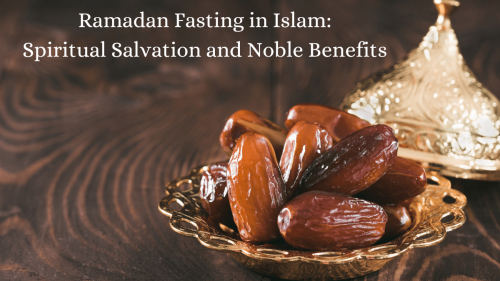In-Depth Guide: The Different Types of Fasting

We created this article because many people are wondering what fasting is all about. This in-depth guide will give you all the relevant information about all the different types. We will also discuss the benefits of these types of fasting, such as water and intermittent fasting, the kind of nutrition you should take in, and building muscle.
With this guide, you will find the answers to your questions for sure!
What is fasting?
Fasting, which in some cases is also referred to as the warrior diet, is when you are willing to reduce or completely take an absence from all food, water, or both for a specific period of time. People tend to fast for reasons related to religion as well as for health-related reasons. There are many proven health benefits of fasting. There are also many differences in fasting when it comes down to absolute fasting, water fasting, intermittent fasting… We will explain them all in the sections below. This in-depth guide on fasting will cover it all.
The main health benefits of fasting.
- Detoxification of the body.
- You burn stored fat which results in rapid weight loss.
- It might help against Alzheimer's and Parkinson according to neuroscientist Mark Mattson.
- Studies have shown that fasting could be effective in regenerating immune cells.
- It could be effective against cancer; studies have shown that cancer patients who followed a fast a couple of days before having chemo had no damaged immune systems!!
- Fasting increases the health of your skin.
- It has a positive effect on your mental condition.
- Researchers claim that it increases your lifespan. It's based on documentation from following cultures that follow a specific diet.
- It improves insulin sensitivity while fasting; insulin becomes more effective in telling the cells to process glucose.
- You'll feel energetic, and you'll be in an excellent physical and mental state.
Note: Fasting also includes some risks that should not be taken lightly. Continue reading to find out more.
The different types of fasting
1. Intermittent fasting
Many people are getting into intermittent fasting, where they decide to skip certain meals. Usually, people do this to lose some weight since it's way more effective and easier to do than a low carb keto diet. But don't be mistaken, it's not a diet; it's a way of scheduling your meals.
Basically, you choose to take in your energy and calories in a specific period of time during the day while not eating anything else outside of this period.
How does intermittent fasting work?
The body can be in 2 states when undergoing intermittent fasting. Nerd fitness likes to refer to it as the "fasting state" and the "feasting state."
A little explanation:
Usually, your body takes all the energy from the food you ate instead of taking it from the fat you've stored. This is especially the case when you're taking in carbs or sugars since the body tends to have a preference for burning sugar as energy.
However, in the "fast state," your body will not have access to a consumed meal; therefore, energy will be taken from the stored fats. Burning fat is a positive thing and explains why people lose weight.
People that don't fast will have normal insulin levels, there will be enough glucose in the bloodstream and the food they take in will be stored as fats. Energy will be gained from burning the sugars.
The main advantage is that while being in the "fast state" your body will burn fat instead of sugars which is the main reason why people lose weight while still eating the same food as before!
Intermittent fasting plans
Usually, people follow one of these intermittent fasting plans
- They eat regularly for a certain amount of time. For example, they only eat during a period of 8 hours, 6 hours, or 4 hours. You can skip breakfast and eat a meal around noon and another meal at 7 pm, then you fast for about 16 hours and repeat the process.
- Other people take a 24-hour break from eating. For example, they eat like usual and they finish dinner at 8, then they skip all the meals for the next 24 hours.
However, there are a lot more possibilities. You can do daily intermittent fasting as described above (keep in mind that you can choose your own period of time for eating and fasting), but there are also people that prefer other ways.
Weekly intermittent fasting is also a popular way and maybe the best way to start! You can start by doing it once a week. For example, you can have your last meal at 2 pm on Monday and start fasting until Tuesday at 4 pm. James clear explains it perfectly by visualizing some awesome schedules.
Another possibility is alternate day intermittent fasting, where you have longer fasting periods on alternating days. For example, you can have a meal on Monday evening; then you fast for about 24 hours until Tuesday evening. However, on Wednesday, you eat normally until the evening, where your 24 hours of fasting start over again.
The choice is really up to you!
Five benefits of intermittent fasting
1. It makes your day easier.
You only have to worry about eating food in your specific set period of time. This translates into not having to prepare, pack or eat a meal every 2,3 hours and you can concentrate on other things.
2. It's not as hard as following a diet.
You don't change the food you eat while being on intermittent fasting; you change how you eat. This is different from diets that usually demand to switch to other foods where the problem exists of people who don't follow it over the long term. Also, effective weight loss makes people not want to give up on intermittent fasting.
3. It may reduce the risk of cancer.
It's not sure that fasting helps to reduce the risk of cancer. However, there are several studies that show us that people who fast before going under chemotherapy have way better cure rates. There will be, without a doubt, more research in the near future on fasting
THERE IS MORE!
4. Intermittent fasting increases weight loss.
As mentioned before, when fasting, your body doesn't have the same insulin levels, and it will start to burn stored fats as an energy source. This will quickly result in effective weight loss.
5. It's effective against insulin resistance and type 2 diabetes.
Fasting leads to a reduction of blood sugar and insulin levels. Obviously, this is beneficial for people with type 2 diabetes although people that suffer from diabetes should always talk to their doctor first before starting with fasting.
Also, make sure to read these ten proven benefits of intermittent fasting here written down by healthline.com
2. Water fasting
Water fasting, also known as the zero-calorie diet, is without a doubt one of the most intense forms of fasting. As you've probably already guessed, it means only drinking water while consuming zero calories. People follow this intense form of fasting mainly because of detoxification reasons. Other types of fasting also include detoxification and therapeutic benefits, but water fasting is simply the fastest way.
Be aware that you need to properly prepare for water fasting as it may be difficult to do in the first few days. This means getting rid of processed sugars, flour, and products that contain caffeine 2 or 3 days before you start with water fasting. Try a raw diet of fruits and vegetables.
How it works and why you lose weight fast with water fasting.
Well, it's kind of simple. You drink only water and eat nothing for about three days, you could do it longer, but supervision is strongly advised! If it's your first time, you should just try it for a single day in the week, to begin with. Because of the fact that you take in zero calories, you will lose EVERY DAY between 1 and 2 pounds.
If you have taken in lots of processed food prior to your water fast, you will probably retain a lot of water and therefore lose weight up to 3 pounds!
An Adult male should be taking in 3 liters of water on a daily basis while water fasting; for women, it's about 2,5 liters. When sticking to these amounts, you should be fine.
However, make sure to contact a doctor before starting a water fast because there are risks that you should consider especially if you have any health issues.
Note: people that take in medication on a daily basis should not be following a water fast!
Follow these water fasting tips to make it easier for yourself.
Follow these steps I found on WikiHow to plan your water fasting properly and avoid any problems.
1. Plan your water fast
- Visit your doctor
- Fast under supervision
- Do not fast when having medical issues
- Select a length of time
- Fast during a low-stress time
- Prepare mentally
- Transition into your fast
2. Accomplishing your water fast
- Drink 9-13 glasses of water a day
- Combat bouts of hunger
- Break your fast slowly and gradually
- Eat a healthy diet
3. Stay safe during your water fast
- Avoid dizziness
- Differentiate normal from abnormal side-effects
- Get plenty of rest
- Avoid intense exercise
Ten health benefits of water fasting
I found some excellent health benefits of water fasting on the style craze that I found worth mentioning. Have a look!
- You will lose weight very quickly!
- Water fasting increases insulin sensitivity.
- It increases body recovery and healing.
- Lower stress levels decreased blood pressure, and it rejuvenates the body
- Increases immunity because of better cell resistance.
- It enables a reduction in cancer cell proliferation.
- Water fasting slows down aging and cognitive decline.
- It lowers the risk of heart disease.
- Also, it solves digestive problems.
- It's an opportunity for emotional and spiritual introspection.
3. Fasting during Ramadan
Ramadan is a holy month for Muslims where they observe their fasting for 30 days. They abstain from food, drinks, intimate intercourse and smoking from sunrise to sunset. At sunset, they can break their fast, and they can continue eating until sunrise. This process is repeated over these 30 days. The ruling for Ramadan is that you can only participate if you are in a state of good health, so if you are sick or will get sick because you're fasting, you are not obliged to participate. It is actually forbidden in that case; besides that, all Muslims must take part in Ramadan according to the religious rulings.
Muslims usually break their fast by eating some dates and drinking water. The dates are very good for getting an energy boost and fueling your stomach to process the food you are about to eat. Water is also very important since you have been dehydrated. It is a custom that Muslims pray the Maghrib prayer (sunset) after eating the dates with water. After the prayer, they start eating the main course.
It is a habit for Muslims to wake up just before sunrise (Suhoor) to have a small meal to get some fuel for the next day. Meals that are rich in fiber and protein are perfect for this.
Tips for making Ramadan easier
Because Ramadan is a process of 30 days, it can be quite difficult to stay motivated therefore, we have listed a few tips and tricks to make it easier.
1. Surround yourself with friends and family.
Keeping good company keeps you entertained and you don't think about food as much.
2. Start fasting a few days in the month before Ramadan.
This way, your body will get accustomed to it, and you won't have such a hard time adapting.
3. Make sure your meals are light and nutritious.
You don't want to eat fried foods and soda because you will feel very bad the day after.
4. Replace your usual snacks with nuts and fruits.
These are very healthy and will give your body the fuel it needs.
5. Plan your meals ahead
This way you can make sure that you get all the nutrients and vitamins that are necessary to function properly.
6. Try to work out after you break your fast.
Working out on an empty stomach is not advised; your body will benefit more when it has re-upped on energy.
7. Take a small nap in the afternoon
Your body can use some extra rest during this period.
8. Drink at least one-liter water
Preferably more, but definitely get that one liter in your system, so your body is rehydrated and ready for the next day of fasting.
The bottom line?
Granted, the month of Ramadan is not an easy one, but it sure has a lot of benefits. The reason why Muslims fast is because they believe it is some sort of training. By fasting, you stay away from your body's primary needs from sunset until sunrise. This is basically one of the best forms of self-discipline! Another reason they fast is to get closer to the less fortunate; they get to know how it feels to be hungry for an extended period of time. Muslims also make sure to give as much to charity so they can help the people that live in these conditions every day.
4. Christian fasting
This form of fasting also referred to as spiritual fasting, is done by Christians in order to seek a closer intimacy with God. It includes seeking absence from water, food, and sex to focus on spiritual growth. Although it's believed that fasting is not commanded by scripture, Christians believe that by fasting you show to God and yourself that you are serious about your relationship to God. Fasting and prayer are often linked to each other and the Bible even presents fasting as something that is good and beneficial for you.
How does Christian fasting work?
Well, the same as normal fasting. You choose a specific period of time where you decide not to eat, drink, or have marital relations. The benefits remain the same as for example intermittent fasting and water fasting.
Things to consider while doing a Christian fast
1. What kind of fast will you follow?
You can completely seek absence from water and food or you can just not take in any calories for a specific type of time.
2. Have you ever fasted before?
If not, you might want to take it easy. Start with a short time of fasting before building up your periods.
3. Consider your schedule and obligations
It's easier to fast on days when you have the time to relax. Avoid high-energy obligations.
4. Plan fasts on days where you can combine it with prayers
As mentioned before, fasting and prayer go hand in hand.
5. Plan fasting for times when other people will not be inconvenienced by it.
Fasting on Christmas might not be the wisest and most fun thing to do as there will be dinners everywhere!
5. Diagnostic fasting
It's a test that helps with finding out the cause of a person's (usually kids) low blood sugar. It is used when low blood sugar levels are causing problems that need to be investigated. This test gives information on whether the problems are caused by an endocrine or a metabolic problem.
When undergoing such a test, the doctors responsible will give you all the information that is necessary and explain it in detail. They will also ask for all information on health issues, allergies… the person may have.
During the test, you are only allowed to drink some water, and you cannot eat any food. Every hour, a small sample of blood will be taken to check the blood sugar levels. This process will continue until the blood sugar levels drop to a low level or a period of time set by the doctor.
Once the final blood sample is taken, eating and drinking can be done as usual. After eating, there will be taken a urine sample and the blood sugar levels will be kept checked until 2 hours after the meal.
There are no real risks related to a diagnostic fast since you are closely observed by doctors although people tend to feel tired and weak during the test because they can't eat.
Nutrition during fasting
Of course, this means the kind of nutrition you can take in a while NOT fasting.
Eat a healthy balance of foods, including lots of fruits and vegetables. Make use of low-fat cooking methods and avoid processed foods and sugars. Take in a variety of cruciferous vegetables mixed with leafy greens, red and orange vegetables, starchy vegetables and fresh fruit.
Water is essential for all types of fasting and should be your overall priority. When it's very hot or you are planning to exercise, try adding at least ½ ounce of water per pound of body weight. Also, try to take in enough meat or fish or alternatives.
Freshly made juices, smoothies, and shakes are definitely allowed. These contain natural sugar and are filled with all the good stuff. Tea is also allowed, although tea that doesn't contain caffeine is the best option. For example, you can try herbal tea.
In general, eating low-fat and low-sodium foods like fruits, vegetables, and whole grains are recommended. You can also puree cooked foods with a little bit of water.
Remember: A balanced intake of foods and drinks is very important between fasts. Our kidneys are extremely efficient at maintaining the body's waters and salts but you lose some of these by sweating. To prevent muscle breakdown your meals must contain enough energy food such as carbs and some fat.
Foods to avoid while fasting?
There are some foods you should stay away from while fasting. Have a look!
- Deep-fried foods
- High-sugar and high-fat foods
- High-fat cooked foods
Try going for healthier alternatives like baked and grilled meat, milk-based sweets and baked potatoes instead of making French fries. Avoid (deep) frying and excessive use of oil, grilling or baking are way healthier alternatives.
Building muscle while fasting: is it even possible?
First of all, let's go back to the fact that through fasting you will obtain a fit, strong and lean body without having to follow an intense diet.
It's totally possible to gain muscle mass while fasting.
Think about it:
Taking in a certain number of calories, let's say 2500 a day, stays the same whether you take this amount in during a 16-hour span or an 8-hour span. 2500 calories = 2500 calories. This means your body still can get all the nutrition and building materials in order to build muscle.
The only difference is you will lose a lot of weight quickly when fasting because of the stored fats that are burned instead of the sugars. This does not translate in not being able to build muscle. Don't forget to exercise a bit as well, because this is obviously correlated to building muscle mass.
Also, have a look at the diet doctors' article on building mass while fasting. He explains why fasting does NOT burn your muscles.
Building muscle during Ramadan
If you are a bodybuilder or an athlete that aims to get some more muscle, Ramadan is just not the time! You want to focus on maintaining your muscle mass and losing your fat percentage. The reason for this is that most people are not able to eat as many calories as they should to gain muscle. Also, note that if you eat a lot during the night time, you will suffer more during the day.
In this period, you want to lift weights that are a little lighter than you're accustomed to and you do not want to workout longer than one hour. Keep eating healthy and workout moderately so at the end of the month you are lean and your muscle is still there.
Fasting for blood tests
In some cases, doctors will ask that you fast for about 8-12 hours in order to succeed in a certain (blood) test. Basically, you cannot eat and drink for this period of time except for drinking some water in most cases. If you do not follow these fasting instructions, your results may not be accurate!
To make it easier for yourself, avoid smoking, exercising and chewing gum for this period of time. Luckily, you don't need to fast for all blood tests but your doctor will inform you whenever you do have to fast for 8-12 hours.
The following tests usually require fasting:
- Diabetes tests
- Tests to check your levels of cholesterol
- Tests for liver and kidney functioning
- Vitamin B-12 test
- Iron test
- Gamma-glutamyltransferase
Fasting while having diabetes
There are definitely risks related to fasting if you have diabetes, according to Kathaleen Briggs Early from the Pacific Northwest University of Health sciences. According to her, all people that suffer from diabetes should inform themselves with a doctor before taking the step to fasting. You should have a solid plan that takes medication, hydration, and nutrition into account.
The risks of not eating while having diabetes.
The main risk of not eating while having diabetes is hypoglycemia or low blood glucose. Apparently, the risk of being hospitalized for people with diabetes due to hypoglycemia is way bigger during fasting and experts consult to immediately stop fasting when this might happen. It happens a lot during Ramadan. Always contact your doctor if you have diabetes and you are interested in fasting.
Other things think to look out for:
Hyperglycemia or high blood glucose can also lead to problems when fasting. The combination of people cutting back in medication and the liver that releases stored glucose for energy can result in very high blood glucose.
Dehydration is another common risk people face while fasting. It is really important to take in sufficient amounts of water while not fasting. It can lead to major problems with kidneys and heart disease.
Note: Listen to your body! Headache, nausea, dizziness, and vomiting will often mean it's time to break your fast! Urine becoming dark is a clear sign that you are becoming dehydrated.
Things to remember
Fasting requires a lot of self-discipline and motivation. Make use of the tips we mentioned throughout this post to make the process easier for yourself. Remember the kind of nutrition that is best for you while being on a fast and be aware that working out is possible but you should try lighter workouts in most cases.
Share this guide with your friends and family and educate them on everything they should know about the different types of fasting!
(Reprinted with permission from Balanced Lifestyle Blog.)

















